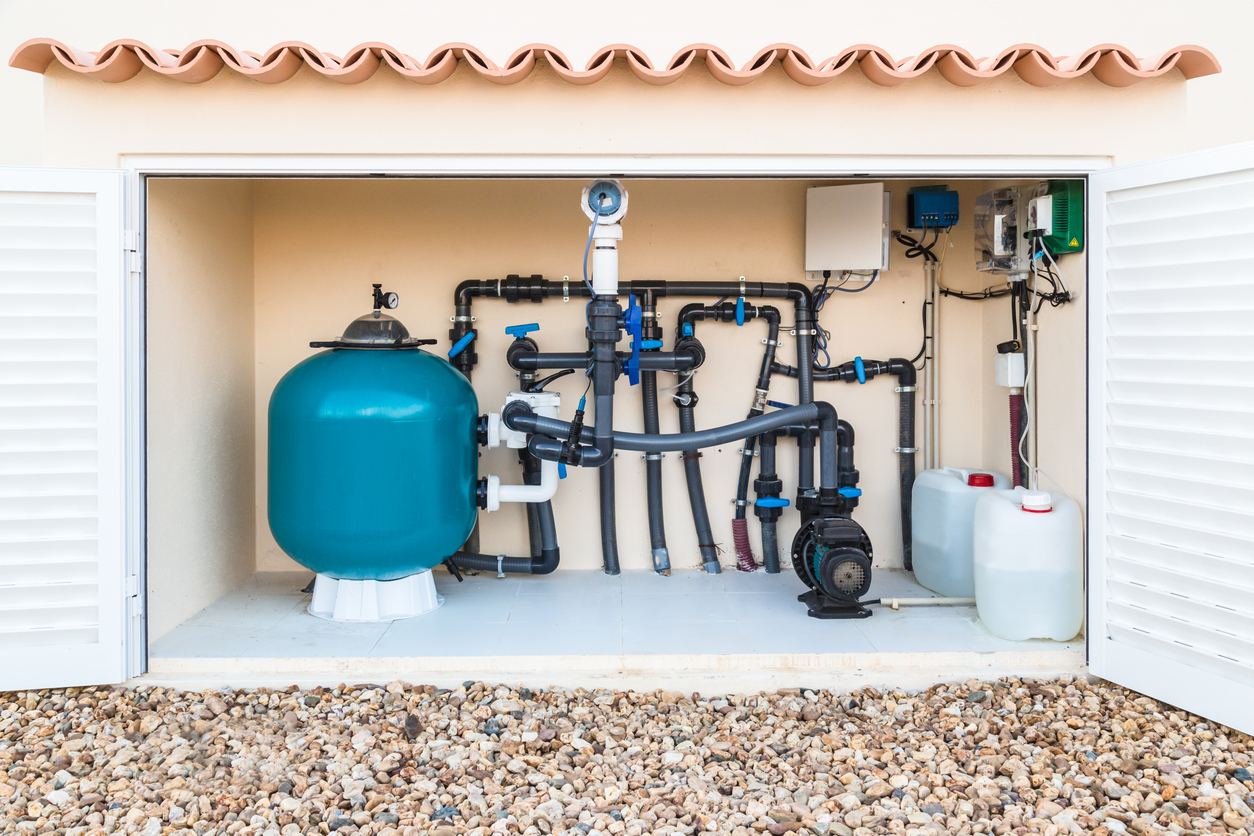How to Extend the Life of Your Pool Equipment

Pool equipment is an investment, and like any investment, it pays to take care of it. A well-maintained pump, filter, heater, and other components can last years longer than neglected equipment. The key is routine maintenance, early problem detection, and proper usage. This guide walks through the best practices for prolonging the lifespan of your pool equipment and avoiding costly repairs.
The Biggest Threats to Pool Equipment Longevity
Many pool owners don't realize that preventable issues are responsible for most equipment failures. The most common culprits include:
- Chemical Imbalance - Highly acidic or alkaline water can corrode metal parts and degrade plastic seals.
- Poor Circulation or Blockages - A clogged skimmer basket or filter forces the pump to work harder, increasing wear and tear.
- Lack of Regular Cleaning - Dirt, debris, and scale buildup can shorten the lifespan of pumps, filters, and heaters.
Pump Maintenance: Keeping the Heart of Your Pool Healthy
The pool pump is the most essential piece of equipment, circulating water through the filter and returning it clean. Keeping it in good shape ensures the entire system runs efficiently.
- Run the pump for the right amount of time - Aim for at least 8-12 hours per day to keep water circulating properly.
- Check for leaks and air bubbles - If you notice air bubbles coming from the return jets, there may be an air leak in the suction line or a loose pump lid.
- Clean the pump basket regularly - A clogged basket forces the pump to work harder, leading to motor wear.
- Inspect and lubricate O-rings - If O-rings dry out, they can crack and cause leaks. Use a silicone-based lubricant to keep them flexible.
Filter Maintenance: Preventing Clogs and Poor Water Quality
A neglected filter not only shortens its lifespan but also reduces water clarity and circulation.
- Backwash sand and DE filters as needed - When the pressure gauge reads 8-10 psi above normal, it's time to backwash.
- Clean cartridge filters regularly - Rinse cartridges every few weeks and soak them in a filter cleaner a few times per season to remove oils and debris.
- Replace filter media on schedule - Sand filters need new sand every 3-5 years, DE grids may need replacement every 3 years, and cartridges typically last 1-2 years.
Heater Maintenance: Avoiding Costly Repairs
Pool heaters are prone to mineral buildup and corrosion, especially in areas with hard water.
- Flush the heater regularly - Mineral deposits and scale can reduce efficiency. Flushing it at the beginning and end of each season helps prevent buildup.
- Check the pilot light and ignition system - Gas heaters need proper ventilation, while electric heaters should have secure wiring.
- Keep pH balanced - Low pH is particularly harmful to heater components, leading to premature failure.
Additional Equipment Maintenance Tips
- Protect from the elements - Keep pumps, filters, and electrical components covered but ventilated to prevent overheating.
- Winterize if necessary - In colder climates, drain water from equipment and store removable parts indoors to prevent freezing damage.
- Schedule professional servicing - Even well-maintained equipment benefits from an annual checkup by a pool technician.
Prolonging the life of your pool equipment doesn't require a lot of effort - just regular maintenance and an eye for early warning signs. By keeping your pump, filter, and heater clean, well-lubricated, and free of chemical imbalances, you can avoid costly repairs and replacements while ensuring your pool stays in top condition year after year.
